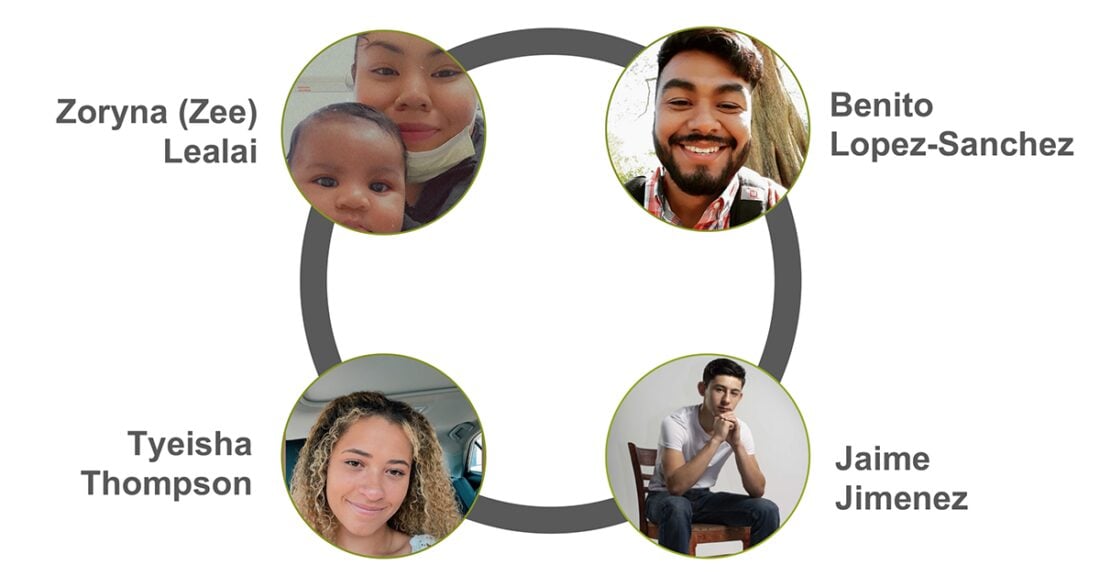The Importance of Youth Advocacy
A Conversation with Young Leaders

Youth, especially those who have been involved in public systems or experienced homelessness, must be given resources and support to share their stories and advocate for the things they need to thrive. That was the theme of a panel discussion held last month during the Annie E. Casey Foundation’s fifth annual Learn and Earn to Achieve Potential (LEAP™) convening.
The speakers, all of whom are national LEAP fellows and leaders, outlined several ways that youth-serving organizations can help young people shape the policies and decisions that affect them.
Among the recommendations:
- Foster safe and welcoming environments where young people feel comfortable discussing their experiences with staff and each other. “I could feel a shift of my mindset and my energy when I was able to communicate what I was going through and what I needed,” says Tyeisha Thompson. She also highlighted the important role sharing stories can have in creating positive change for other young people in similar situations: “[I]t’s nice to take control… and use your story and experience to create change.”
- Provide youth with opportunities to strengthen their public-speaking skills. “Public speaking would be a great addition to the curriculum in the LEAP program…and I think it should be a fundamental step in young people’s growth,” says Jaime Jimenez. “How are we supposed to know the problems that need to be solved immediately…without [young people] being able to speak for themselves and give out the information?”
- Redefine advocacy and help young people see that they can do it in their daily lives. “I want to break down the anxious feeling around advocacy,” says Zoryna (Zee) Lealai. “Public speaking and advocacy, if we break them down, are what we do every day…it’s simply saying yes or no and then building off of that.”
The panelists also emphasized the importance of relationships in helping young people take advantage of resources and achieve their education and career goals.
“Once I started to build a connection…I found myself getting more and more involved, more and more invested in what [LEAP] was offering, and I started going to every single workshop,” says Jimenez.





